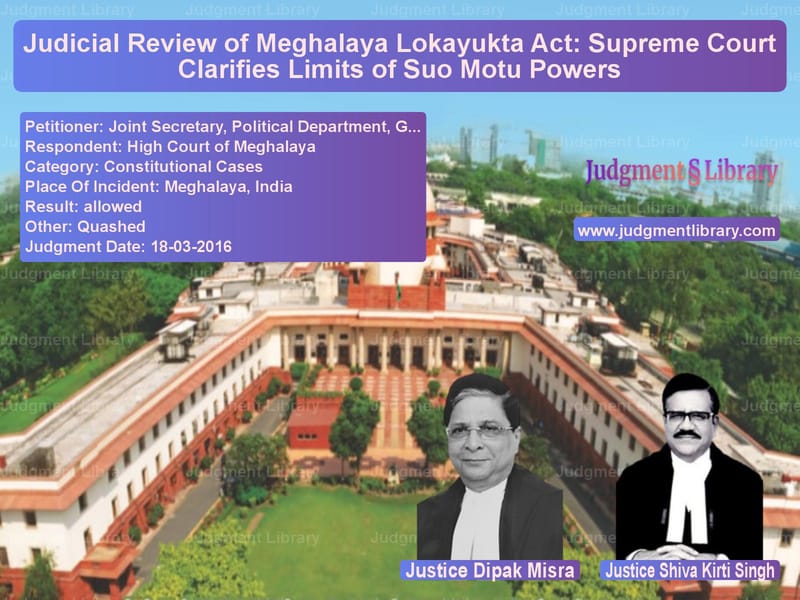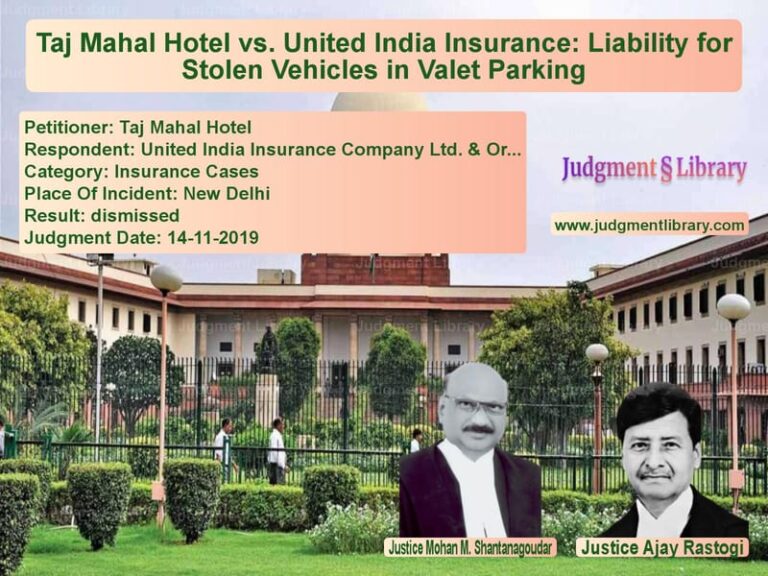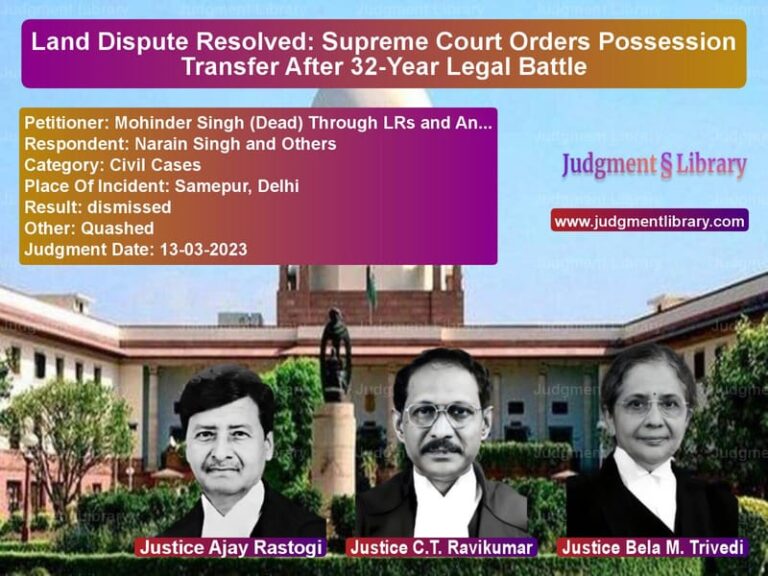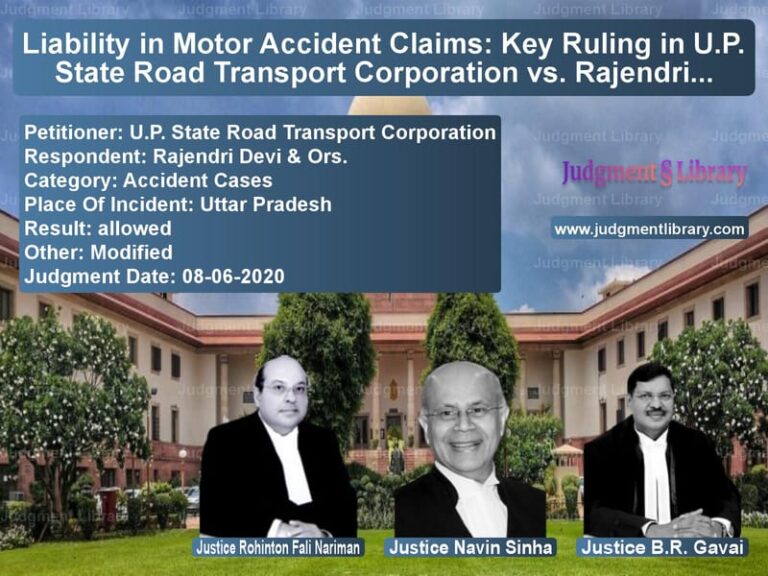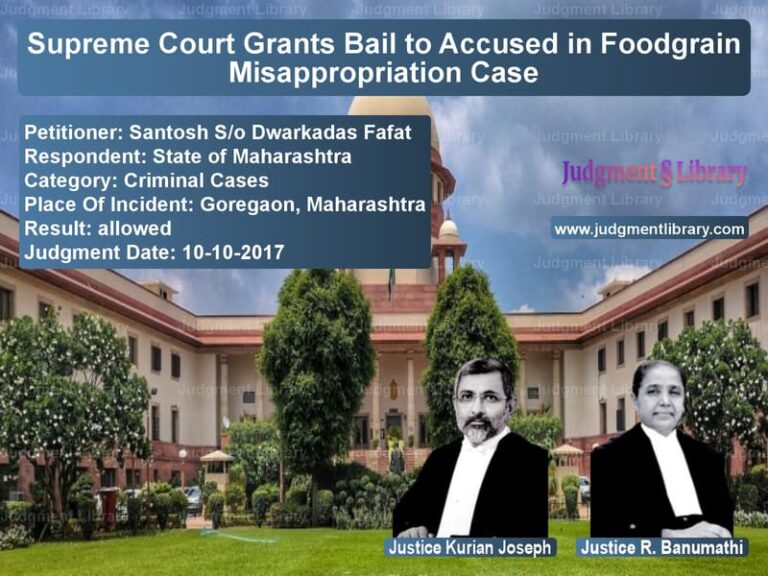Judicial Review of Meghalaya Lokayukta Act: Supreme Court Clarifies Limits of Suo Motu Powers
The Supreme Court of India delivered an important judgment in the case of Joint Secretary, Political Department, Government of Meghalaya vs. High Court of Meghalaya. The dispute revolved around the Meghalaya Lokayukta Act, 2014, and the powers of the High Court to intervene suo motu in legislative matters. The ruling was crucial in clarifying the extent to which High Courts can initiate suo motu proceedings and stay statutory provisions without a constitutional challenge being raised.
The case emerged after the Meghalaya High Court took up a suo motu writ petition regarding the appointment of the Lokayukta and the failure to constitute the Meghalaya State Human Rights Commission. The High Court had stayed certain provisions of the Meghalaya Lokayukta Act, 2014, particularly those related to the eligibility of non-judicial members for appointment as Chairperson. This led the Government of Meghalaya to challenge the High Court’s decision before the Supreme Court.
Background of the Case
The Meghalaya High Court initiated a suo motu writ petition titled “Suo motu cognizance of appointment of Lokayukta and failure to constitute Meghalaya State Human Rights Commission.” The High Court expressed concerns over the eligibility criteria for the Chairperson of the Lokayukta under Section 3(2) of the Meghalaya Lokayukta Act, 2014. The Court issued an interim order staying the provision that allowed an eminent non-judicial person to be appointed as Chairperson.
The High Court also directed the Meghalaya government to ensure that the Meghalaya State Human Rights Commission was constituted and operational by a fixed deadline. Additionally, it instructed the Chief Secretary of the State to file an affidavit detailing the status of appointments and indicating the names of retired Supreme Court and High Court judges who had been considered for the role.
Legal Arguments by the Petitioner (Government of Meghalaya)
- The State of Meghalaya argued that the High Court overstepped its jurisdiction by staying a provision of the Meghalaya Lokayukta Act, 2014, without any challenge to its constitutional validity.
- The petitioner contended that the High Court could not suo motu question the legislative intent of a duly enacted statute.
- The government emphasized that the Meghalaya Lokayukta Act followed the framework of the Lokpal and Lokayuktas Act, 2013, which was enacted by the Parliament, and its provisions could not be stayed without a proper challenge.
- The petitioner submitted that there was no substantive plea questioning the validity of the Act, and therefore, the High Court’s intervention was unwarranted.
Legal Arguments by the Respondent (High Court of Meghalaya)
- The High Court, through its Registrar, defended its intervention by asserting that its objective was to ensure transparency and fairness in the selection process of the Lokayukta and Human Rights Commission.
- The Court justified its decision by arguing that the eligibility criteria in the Meghalaya Lokayukta Act were inconsistent with the eligibility criteria followed in other states.
- It maintained that its stay order was necessary to prevent the appointment of an unqualified individual as Chairperson of the Lokayukta.
Supreme Court’s Key Observations
The Supreme Court, after hearing both parties, made the following key observations:
- The High Court does not have the authority to stay statutory provisions unless their constitutional validity is specifically challenged before it.
- There was no petition challenging the legality of the Meghalaya Lokayukta Act, 2014, and therefore, the High Court’s decision to stay its provisions was legally untenable.
- Courts can take suo motu cognizance in cases of public interest, but such intervention must be within the constitutional framework.
- The judiciary should exercise restraint when dealing with legislative matters and should not assume the role of lawmakers.
- Comparing the Meghalaya Lokayukta Act with similar legislation in other states does not provide grounds for staying its provisions.
Final Judgment and Its Implications
The Supreme Court held that the High Court of Meghalaya had acted beyond its jurisdiction by staying a provision of the Meghalaya Lokayukta Act, 2014, without any challenge to its constitutional validity. The Court set aside the High Court’s stay order and emphasized that judicial review must be exercised within the framework of constitutional law.
The judgment serves as a precedent to prevent courts from engaging in excessive judicial activism in legislative matters. It reaffirms the principle that High Courts cannot suo motu strike down or stay statutory provisions unless there is a constitutional challenge raised by an aggrieved party.
Conclusion
The Supreme Court’s ruling in this case reasserts the fundamental principle of separation of powers between the judiciary and the legislature. By setting aside the High Court’s intervention, the judgment reinforces the notion that courts should respect legislative intent and avoid undue interference in policy matters unless a clear constitutional violation is established.
Don’t miss out on the full details! Download the complete judgment in PDF format below and gain valuable insights instantly!
Download Judgment: Joint Secretary, Pol vs High Court of Meghal Supreme Court of India Judgment Dated 18-03-2016-1741853931304.pdf
Direct Downlaod Judgment: Direct downlaod this Judgment
See all petitions in Constitution Interpretation
See all petitions in Public Interest Litigation
See all petitions in Legislative Powers
See all petitions in Judgment by Dipak Misra
See all petitions in Judgment by Shiva Kirti Singh
See all petitions in allowed
See all petitions in Quashed
See all petitions in supreme court of India judgments March 2016
See all petitions in 2016 judgments
See all posts in Constitutional Cases Category
See all allowed petitions in Constitutional Cases Category
See all Dismissed petitions in Constitutional Cases Category
See all partially allowed petitions in Constitutional Cases Category

